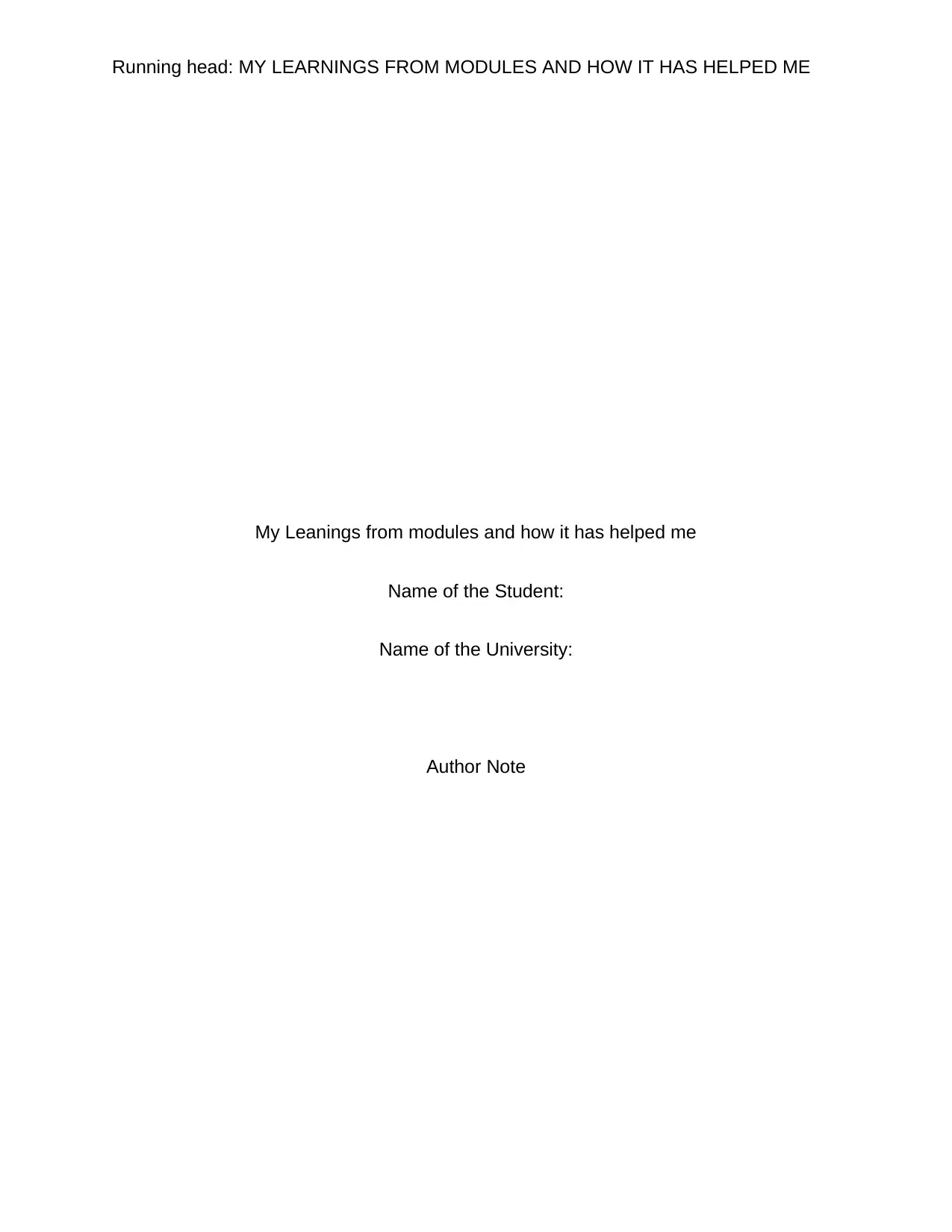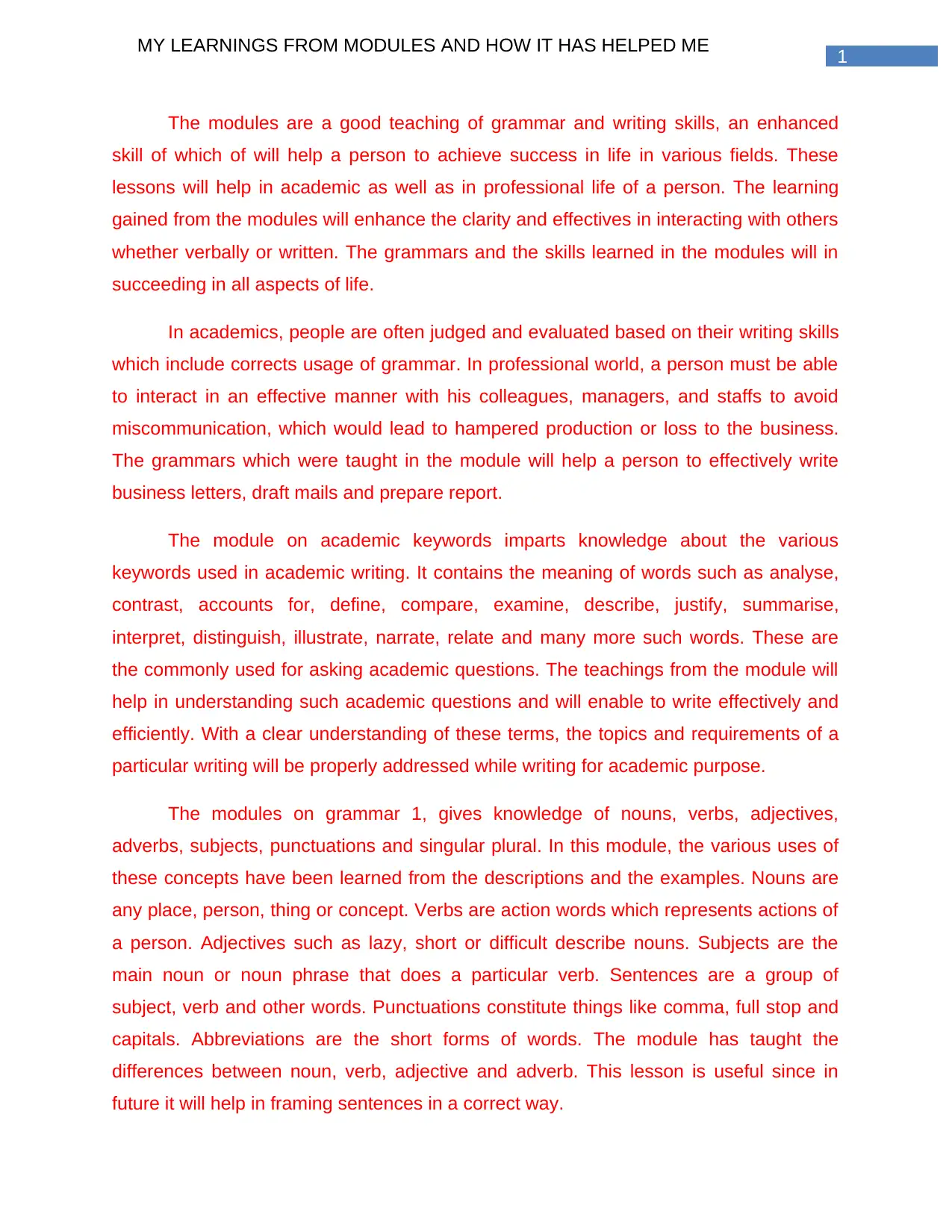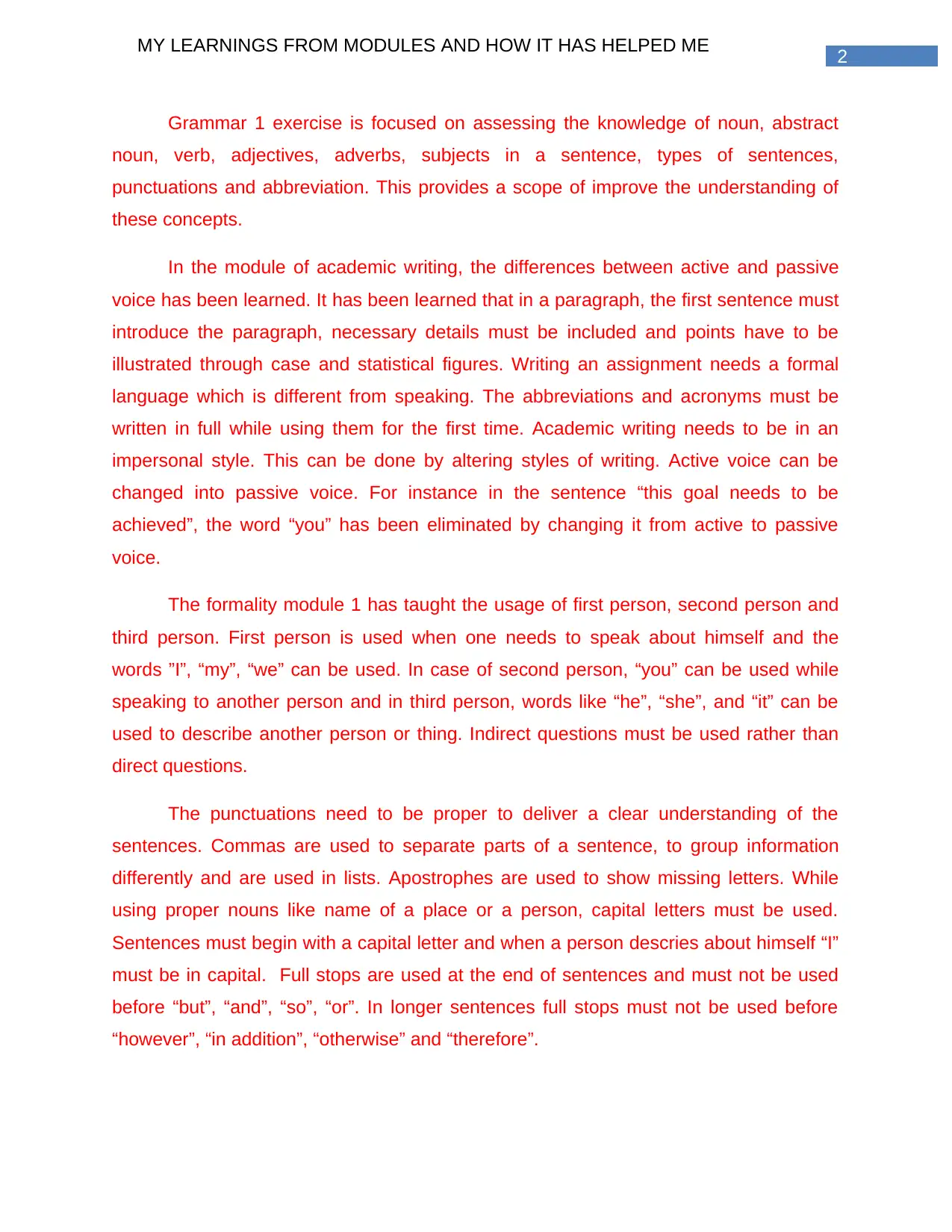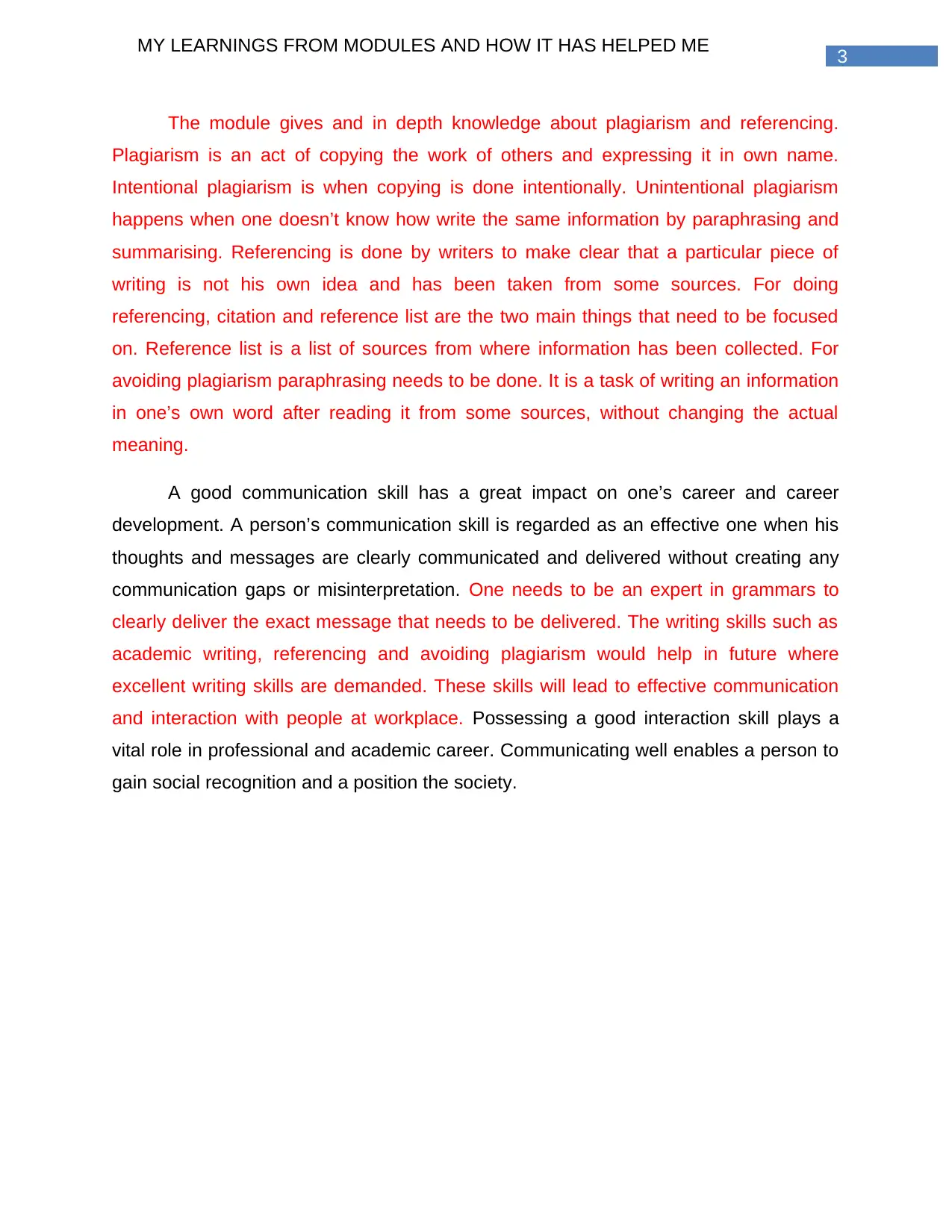The modules on Desklib provide valuable lessons on grammar and writing skills, which can enhance clarity and effectiveness in communication. These modules are beneficial for academic and professional success, helping individuals excel in writing business letters, drafting emails, and preparing reports. The modules also cover academic keywords and concepts such as nouns, verbs, adjectives, adverbs, subjects, and punctuation. Additionally, they provide insights on academic writing, active and passive voice, formality, and proper usage of punctuation. The modules also address the importance of avoiding plagiarism and the significance of referencing in academic writing. Developing strong communication and writing skills through these modules can greatly impact one's career and overall success.
![[object Object]](/_next/static/media/star-bottom.7253800d.svg)
![[object Object]](/_next/static/media/star-bottom.7253800d.svg)



